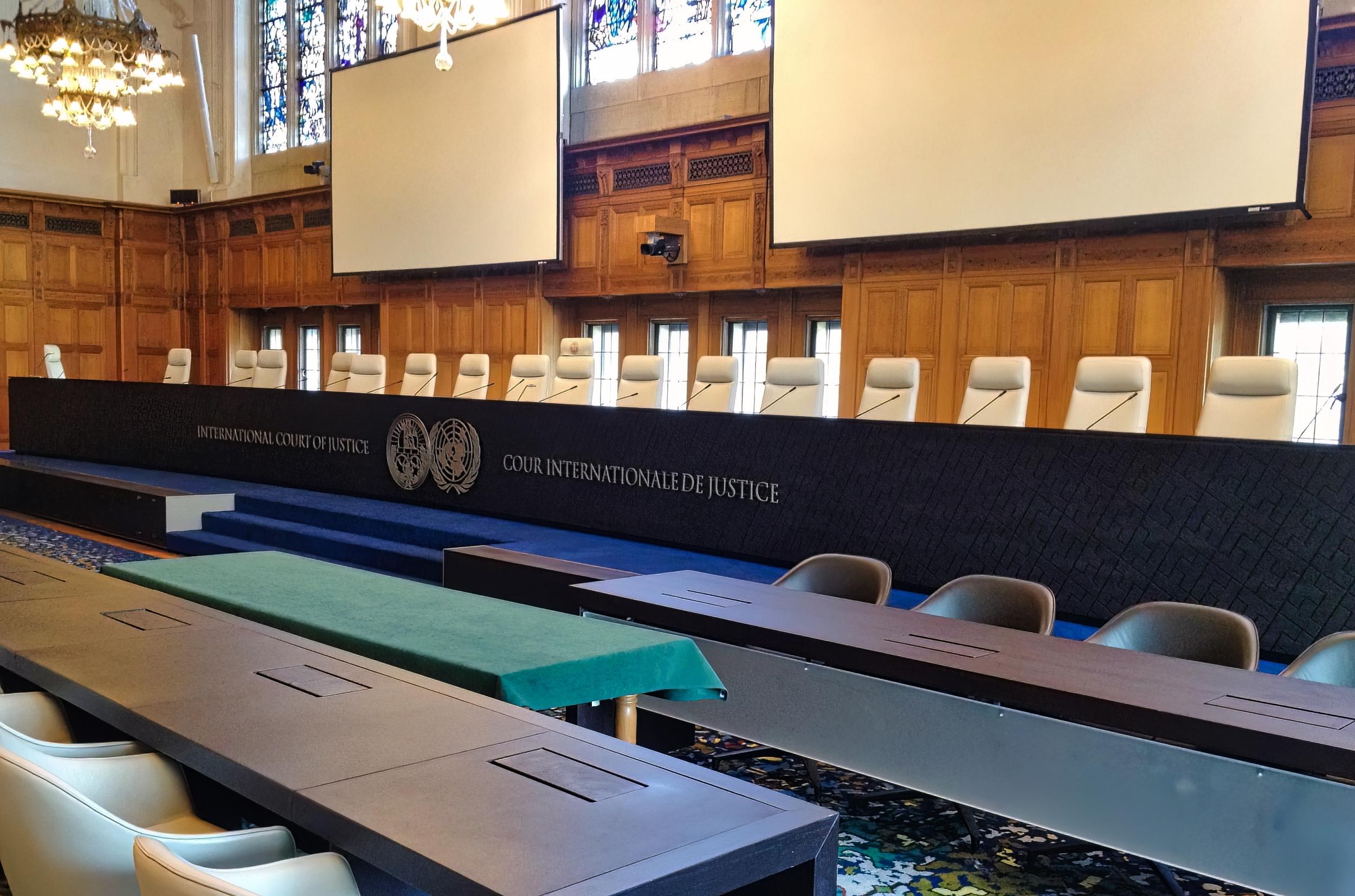The Hague, Israel-Gaza War
The Hague Ruling on Israel's War: The Possible Scenarios
Professor Amichai Cohen, an expert of public international law, believes the Hague will not issue an injunction to stop the war entirely, but thinks there are things we need to look at. Interview.

The International Court of Justice will deliver its decision regarding an interim injunction on South Africa’s complaint to stop the war in Gaza, which they argue is a “genocide” by Israel. Professor Amichai Cohen, an expert in public international law, told Srugim/JFeed in an interview that the ICJ probably won’t rule that the war must be stopped – but does note that there are additional issues worth looking at when the ruling is handed down.
Professor Cohen said “I don’t think it reasonable that a decision for a ceasefire due to genocide will be handed down, as the prosecution is demanding. If such an injunction is handed down, Israel could hypothetically refuse and this will have consequences, like countries who don’t want to sell weapons to Israel or worse things.”
“It’s important to see who voted for and who voted against”
Still, Cohen believes the decision is dramatic, “and therefore there are three things worth noting in the decision. The first is, what is the determination of the court regarding the preceding question – is Israel actually meeting the threshold for a genocide? It’s unlikely this will be accepted, but if they state that this is not absurd, this will cause Israel harm at the level of hasbarah.”
“Another thing to check is the injunctions: there is an extreme injunction to stop the war, and there are other kinds of injunctions. If they order Israel to stop committing ‘genocide,’ this has not practical effort, since Israel is not committing a genocide. But there could be other injunctions like to stop the incitement, because of statements of politicians who called to kill everyone in Gaza. The court could demand Israel do more in the matter of incitement to genocide.”
“A third point worth noting is the majority that voted – who voted against and who voted for. We can see if the court is a judicial institution or a political institution. Some of the judges come from states where their decision is entirely political such as Lebanon, Morrocco, and Somalia, and some are from states with judicial independence like the US, France, Germany, Japan, Australia, &c.”
According to him, “the breakdown of judges matters a lot. Obviously if all Israel haters vote for the decision, we won’t lose international support, because their political decision will be clear. But it will be interpreted differently if democratic countries are also in favor of the decision.”
South Africa has a Score to Settle With Israel
Regarding Aharon Barak’s role in the decision, Professor Cohen said “the court is comprised of 15 regular judges appointed by the UN based on a geographic key. The moment there is no judge who is a citizen of the country under discussion, one can be appointed solely for that case. This is why Justice Barak was chosen to sit on the discussion and express his opinion. I assume Aharon Barak will wrote something in the decision, whether in the minority or the majority.”
“The International Court in the Hague is a UN legal institution,” the Professor continued. “Its authority to discuss this case is as the legal adviser of the UN organization and suits against states who agreed to it. In the 1950s, a Genocide Convention was written such that all conflicts will be discussed before the court. Israel joined the Convention only on this matter and nothing else. The court does not have the authority to order Israel how to operate in war, it only discusses genocide which Israel agreed to be a part of, as noted, in the 1950s.”
Regarding South Africa which is suing Israel for genocide in Gaza, Professor Cohen explained that “this is a country that has worked with the Palestinians for years. The roots are from the apartheid era in South Africa when Israel worked with this regime. When the government changed, the rage at Israel remained.”